Categories
Management
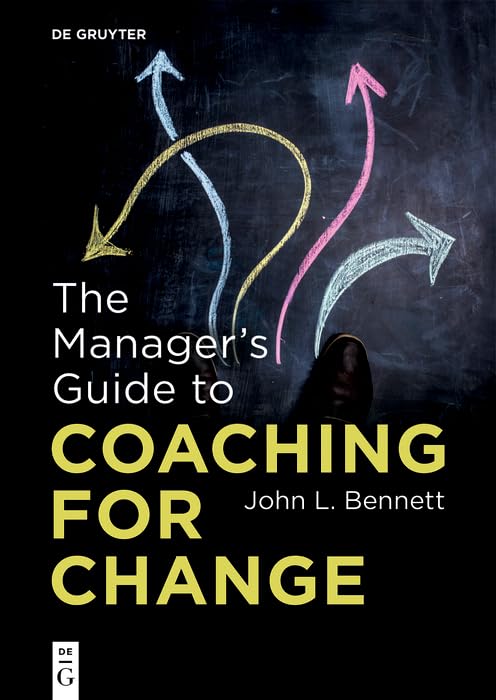
The Manager’s Guide to Coaching for Change
John L. Bennett
We live and work in a world of change. Helping individuals and teams prepare for, respond to, and learn from change are critical for thriving. Managers and leaders at all levels play a vital role in developing talent, increasing performance, and supporting transitions and transformations. This book is about effectively coaching others in your role as a manager-coach. A manager-coach is a person who uses coaching-related knowledge, approaches, and skills to coach team members in the organization who report to them or who have sought their coaching. In 16 chapters, leaders at all levels, human resource professionals, and graduate students will find research-based, practical approaches to developing talent, improving performance, and supporting transformation. Topics include the change coaching process, theoretical foundtions of coaching, use of self in managerial coaching, six coaching skills, how to coach across differences, specialty coaching (peer, team, and executive), ethical considerations for coaching, and continuous development for manager-coaches. Provides models, frameworks and tools that can be used to coach team members.
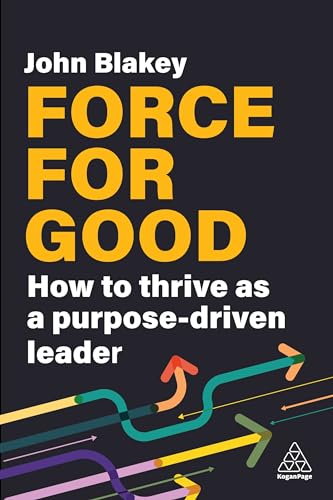
Force for Good: How to Thrive as a Purpose-Driven Leader
John Blakey
SHORTLISTED: Leadership Book of the Year Inside each leader is a force for good and a force for bad. Which one wins? The one you feed. As the business world pivots from profit to purpose, leaders need to access a new set of behaviours, tools and approaches to stay motivated, authentic and successful. Leading for Purpose will help leaders examine whether their current behaviours, ways of working and business strategies are appropriate to the ethical, intellectual and emotional challenges of the purpose-driven business life. John Blakey proposes that without new ways of working, purpose-driven leaders will become increasingly alienated, confused and ill-prepared for the challenges and transforming their business. Leading for Purpose explores the practical challenges facing purpose-leaders. Taking abstract or confusing jargon-fuelled terms, the book provides a collection of common sense techniques and practical tools that any busy, performance-focused leader can quickly deploy to build better and more purposeful organizations.
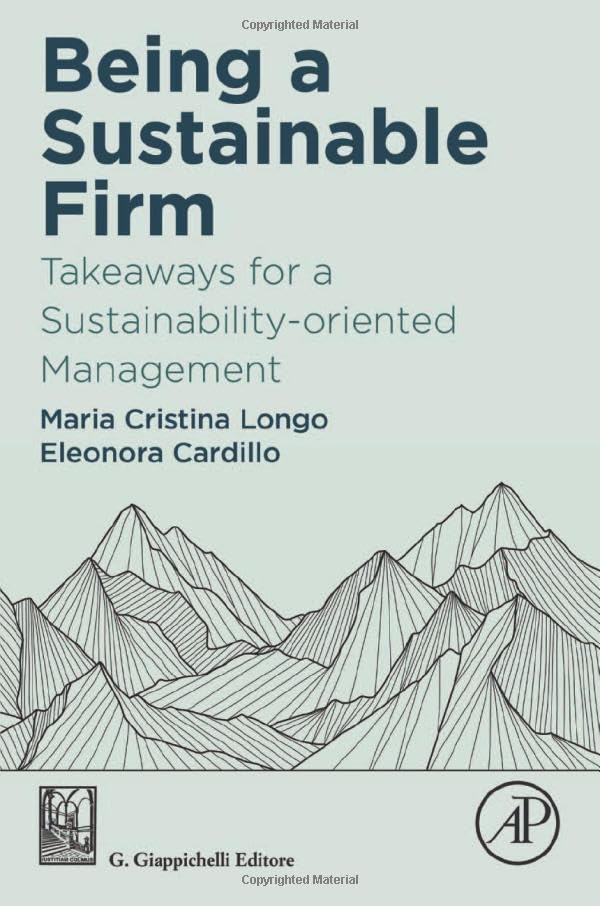
Being a Sustainable Firm: Takeaways for a Sustainability-Oriented Management
Maria Cristina Longo, Eleonora Cardillo
Being a Sustainable Takeaways for a Sustainability-oriented Management addresses strategies and management issues related to the latest innovations in the field of sustainability. It jointly provides theoretical and empirical contributions to give an overall view of the main issues and methods in sustainability management. It highlights opportunities, limits and challenges related to a management of sustainability innovation. It analyzes how firms become sustainable by applying the circular economy framework and accountability tools. It also presents a series of case studies in sectors particularly interested in sustainable development, including fashion, hospitality, and private-public partnerships for local sustainable communities. The book discusses the 2030 Agenda key goals, paying attention to SDG 9: Industry, innovation and infrastructure, SDG 11: Sustainable cities and communities, and SDG 12: Ensure sustainable consumption and production patterns for their interrelations and their managerial implications at organizational and industry level. The volume also deals with the EU SDG indicators set and interconnections in order to have a deeper understanding of the social and environmental reporting systems for specific sectors. Based on this approach, the book examines critical issues in sustainability assessment, corporate challenges and sustainability models. The book provides useful support for scholars in managerial disciplines, such as strategy, operations and digitalization, international business, as well as in areas that involve social and environmental reporting systems and performance evaluation. It will be a valuable guide for researchers wishing to enhance their knowledge in this area of research and gives takeaways for managers and practitioners for implementing sustainable practices and actions.
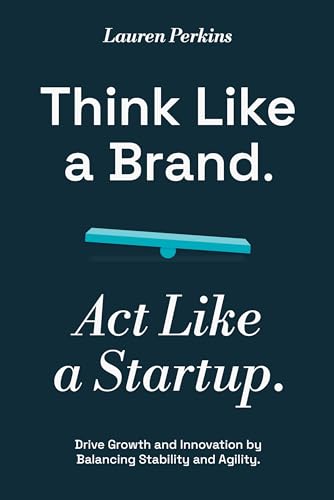
Think Like a Brand, Act Like a Startup: Drive Growth and Innovation by Balancing Stability and Agility
Lauren Perkins
Transform your business with a hybrid approach to achieve revolutionary innovation and long-term success. Experienced startup founder and CMO turned corporate innovator Lauren Perkins has discovered the key to creating that companies must integrate the best aspects of brands and startups to build resilient ventures and accelerate growth. During her fifteen years in the business trenches, Perkins has developed a keen sense of pattern recognition by remaining vigilant to the dynamics of today’s most successful brands and startups. She believes in an approach that blends an established brand’s ability to leverage infrastructure and generate customer loyalty with a startup’s responsiveness to change and challenges; this combination supports customer-centricity. In this book, Perkins lays out this new approach that shows you how to · harness the combined power of brand stability and startup agility, · challenge your assumptions and embrace innovative ways of thinking and working, · prepare to weather the crises your organization will face, and · cultivate a hybrid approach to capitalize on the strengths of each while minimizing the weaknesses. By thinking like a brand and acting like a startup, Perkins reveals how to build successful, sustainable ventures that not only survive but thrive in a world of constant change.
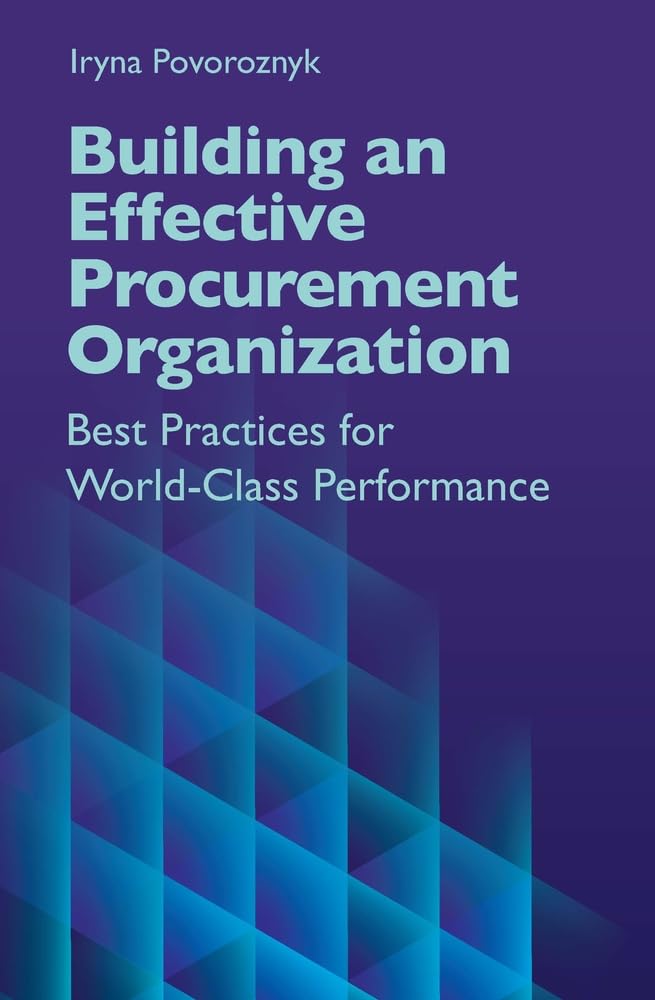
Building an Effective Procurement Organization: Best Practices for World-Class Performance
Iryna Povoroznyk
Effective procurement management is essential for any organization looking to reduce costs, improve quality, and increase profitability. Building a truly effective procurement organization is a challenging multilayered effort that requires establishing a solid base for the deployment of best-practice solutions and ensuring long-term benefits from sustainable procurement operations. Building an Effective Procurement Organization presents essential steps for advancing procurement practices to a world-class level, describing the fundamentals of procurement management and how to build a solid foundation for success. Povoroznyk emphasizes the importance of mastering the basics before diving into more complex procurement concepts. With clear explanations and practical examples, this invaluable resource is for anyone looking to develop their procurement management skills and enhance their organizations’ purchasing power. For entrepreneurs and suppliers, this book will become a source of insider information about the structure of the procurement service of their corporate clients and the tasks that owners and managers of companies set for buyers.
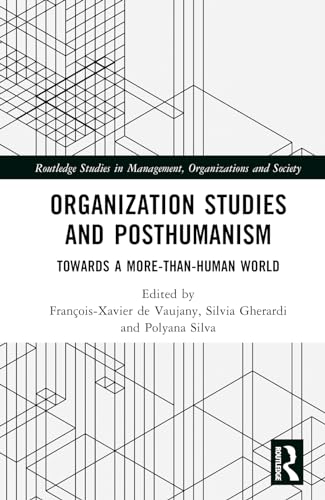
Organization Studies and Posthumanism
Francois-Xavier de Vaujany, Silvia Gherardi, Polyana Silva
This book aims at exploring the reception of critical posthumanist conversations in the context of Management and Organization Studies. It constitutes an invitation to de-centre the human subject and thus an invitation to the ongoing deconstruction of humanism. The project is not to deny humans but to position them in relation to other nonhumans, more-than-humans, the non-living world and all the “missing masses” from organizational inquiry. What is under critique is humanism’s anthropocentrism, essentialism, exceptionalism, and speciesism in the context of the Anthropocene and the contemporary crisis the world experiences. From climate change to the loss of sense at work, to the new geopolitical crisis, to the unknown effects of the diffusion of AI, all these powerful forces have implications for organizations and organizing. A re-imagination of concepts, theories and methods is needed in organization studies for coping with the challenge of a more-than-human world.
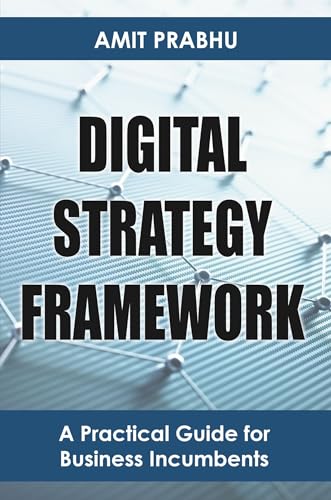
Digital Strategy Framework: A Practical Guide for Business Incumbents
Amit Prabhu
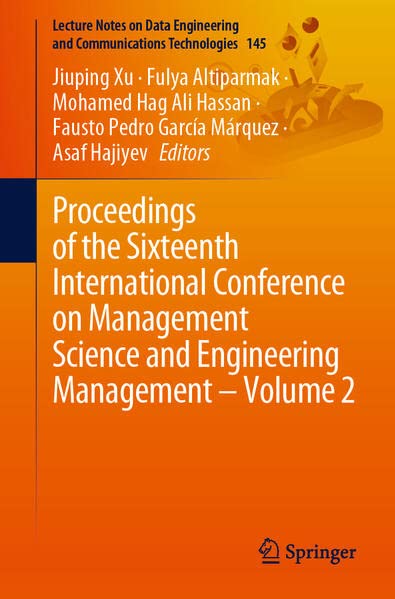
Proceedings of the Sixteenth International Conference on Management Science and Engineering Management – Volume 2
Jiuping Xu
This book covers many hot topics, including theoretical and practical research in many areas such as dynamic analysis, machine learning, supply chain management, operations management, environmental management, uncertainty, and health and hygiene. It showcases advanced management concepts and innovative ideas. The 16th International Conference on Management Science and Engineering Management (2022 ICMSEM) will be held in Ankara, Turkey during August 3-6, 2022. ICMSEM has always been committed to promoting innovation management science (M-S) and engineering management (EM) academic research and development. The book provides researchers and practitioners in the field of Management Science and Engineering Management (MSEM) with the latest, cutting-edge thinking and research in the field. It will appeal to readers interested in these fields, especially those looking for new ideas and research directions.
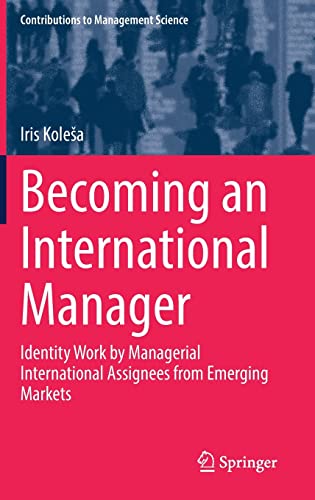
Becoming an International Manager: Identity Work by Managerial International Assignees from Emerging Markets
Iris Koleša
The book discusses international assignment-related decision-making by emerging market firms and their employees. It reveals that the ongoing, reciprocal interactions between the organisational and individual discourses, structures, processes, and the wider macro context spark multilevel role transitions and identity work. The book uncovers the macro-, meso-, and micro-level factors of role transitions and identity work, as well as their outcomes for international staffing. It also expands on the role (transition), social categorisation, and social identity theories by applying them to international staffing. Finally, it presents practical insights for international human resources managers by presenting several 'soft' approaches to managing international employee mobility, such as employer branding, prioritisation of favourable discourses and identities, and encouraging role hybridisation.
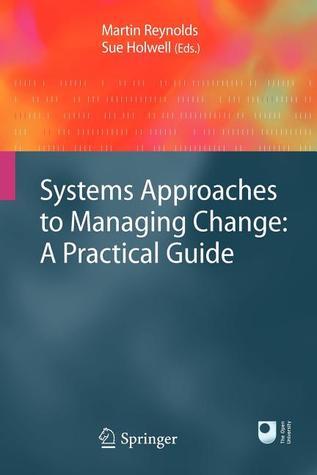
Systems Approaches to Managing Change: A Practical Guide: A Practical Guide
Martin Reynolds, Sue Holwell
This compilation of readings is a practical guide for practitioners involved with managing complex and uncertain situations. At a time when the media continually tells of a world facing many crises, it provides an opportunity to gain understanding of robust approaches to managing complex and ever-changing situations more effectively. The Reader is used as a teaching resource on the new Open University postgraduate course Thinking system tools for managing change and it provides an introduction to five systems System dynamics (SD) developed originally in the late 1950s by Jay Wright Forrester, Viable systems method (VSM) developed originally in the late 1960s by Stafford Beer, Strategic options development and analysis ( with cognitive mapping) developed originally in the 1960s by Colin Eden, Soft systems methodology (SSM) developed originally in the 1970s by Peter Checkland, Critical systems heuristics (CSH) developed originally in the early 1980s by Werner Ulrich.
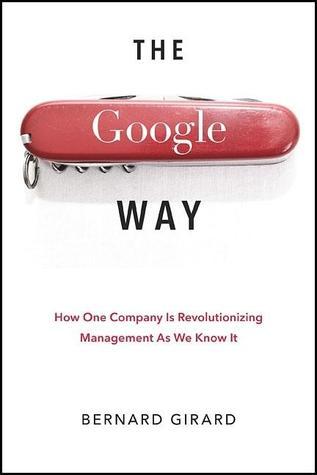
The Google Way: How One Company Is Revolutionizing Management As We Know It
Bernard Girard
Shortly after World War I, Ford and GM created the large modern corporation, with its financial and statistical controls, mass production, and assembly lines. In the 1980s, Toyota stood out for combining quality with continuous refinement. Today, Google is reinventing business yet again-the way we work, how organizations are controlled, and how employees are managed. Management consultant Bernard Girard has been analyzing Google since its founding in 1998, and now in The Google Way , he explores Google's innovations in depth-many of which are far removed from the best practices taught at the top business schools. As you read, you'll see how much of Google's success is due to its focus on users and automation. You'll also learn how eCommerce has profoundly changed the relationship between businesses and their customers, for the first time giving customers an important role to play in a major corporation's growth. Finally, Girard speculates about the limits of Google's business model and discusses the challenges it will face as it continues to grow. Google's culture is one of innovation. Why not make that spirit of innovation your own?
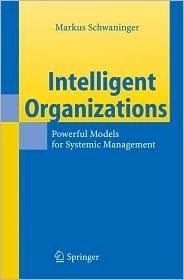
Intelligent Organizations: Powerful Models for Systemic Management
Markus Schwaninger
This book offers an innovative approach to overcome the crisis of management in the face of complexity. The systems approach to management will help to develop the new kind of intelligent organizations so urgently needed. This approach is a powerful tool, grounded in organizational cybernetics and systems dynamics. The approach will allow managers and advanced students of management cope with organizational complexity in an effective way. The book is a source for improvement of any kind of organizations, private or public, non-profit, large or small. The systems approach, on which this book is grounded, makes this book different from many conventional books on organizations.

Internationales Wissensmanagement: Zur Steigerung der Flexibilität und Schlagkraft wissensintensiver Unternehmen
Michael Gehle, Michael Bastian, Hans Schröder
Mit seinem "International House of Knowledge Management" präsentiert Michael Gehle ein leistungsfähiges Konzept für das Wissensmanagement in wissensintensiven internationalen Unternehmen. Es ruht auf den Säulen Mensch & Kultur, Organisation & Prozess sowie Informations- & Kommunikationsmanagement.
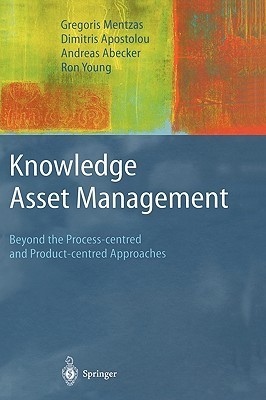
Knowledge Asset Management
Gregoris Mentzas, Andreas Abecker
There are two main approaches to knowledge management (KM), the process-centred approach which treats KM as an interpersonal communication process and the product-centred approach which focuses on the artefacts for knowledge, i.e. the documents, their creation and reuse in corporate computer-based systems. Knowledge Asset Management presents a knowledge asset-centric approach which fuses the previous two approaches together. It provides a conceptual framework to guide managers in the planning and development of the initiative and presents a methodology for organisations to: define and document their knowledge management strategy.- audit and design business processes that enhance and facilitate corporate learning.- facilitate knowledge sharing between people in the organisation.- measure and evaluate the quality and value of the organisation's intellectual capital. The book also introduces a way for developing an intranet-based environment to support: the collection and classification of internal and external information.- reuse of stored knowledge using flexible and customisable knowledge navigators and advanced search mechanisms including keyword and concept-based searching (e.g. visualization of the information space).- collaboration via on-line workspaces. Knowledge Asset Management gives an in-depth look at the technologies and methodologies required for knowledge management. Written by four highly experienced consultants in the field, the books also includes case studies showing how the principles work in practice. "One of the rare books today on Knowledge Management that addresses the leveraging of an organization's intellectual assets by using an integrative and holistic approach. Well worth reading!" Michael Stankosky, Professor of Knowledge Management and Co-founder/co-director of the Institute for Knowledge Management, The George Washington University "This book is a useful illustration of Knowledge Management implementation principles: it synthesizes theoretical and pragmatic approaches to the subject and does a competent job of embracing the various dimensions of a Knowledge Management initiative." Daniele Chauvel, Director, European Center for Knowledge Management; Business School Marseille-Provence "For those organisations who wish to take a strategic view of knowledge management, this book shows how they can take KM to the next level - not driven by a technology solution but based on the strategy and needs of the business." Marc Auckland, Chief Learning Officer and Head of the BT Academy, BT "The KM method proposed in this book enables enterprises to exploit their knowledge more effectively by making it easily available to employees and by facilitating the exchange and integration of information used by knowledge workers in a variety of business situations" Ciro Maddaloni, SOGEI S.p.A., Gruppo Telecom Italia.